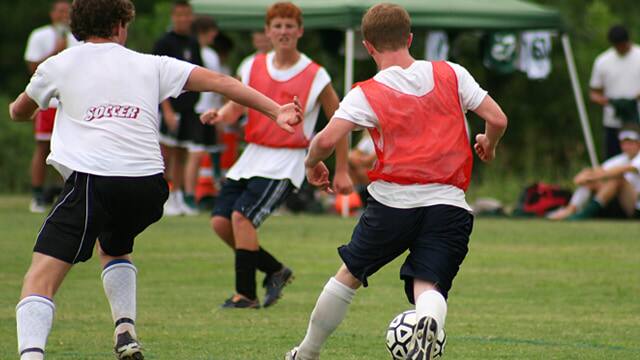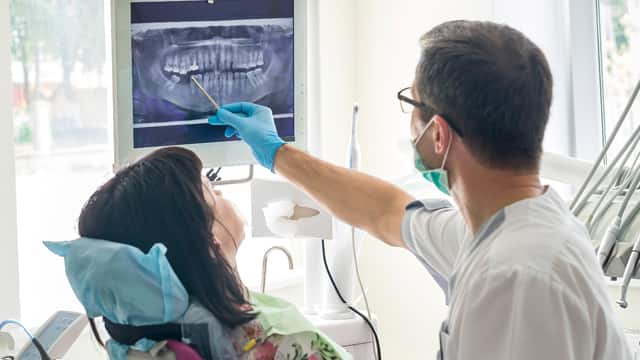Why Wear a Mouthguard
Mouthguards are ubiquitous in sports, especially high-impact sports like football or rugby. Because of the habit of falling, bumping, or hitting opponents may cause broken or chipped teeth. So, athletes wear mouthguards to bite-down on instead. Mouthguards can be purchased in stores or designed specifically for your mouth at your dentist's office. Mouthguards are also helpful if you have issues with clenching or grinding your teeth at night. These devices are often called night guards. Talk to your dentist about a mouthguard if you play high-impact sports or are concerned about teeth grinding. Your dental hygienist or dentist can provide professional recommendations.
Why You Should Clean Your Mouthguard
Just like a toothbrush, mouthguards can retain bacterial plaque and food debris after you wear them. According to the Academy of General Dentistry, mouthguards are porous, which means they provide great places for bacterial plaque and food debris to hide. It's like re-using uncleaned silverware or an old toothbrush! If not cleaned regularly, mouthguards can increase your risk of gum disease and infection. By properly cleaning your mouthguard after every use, you can remove bacterial plaque and food debris and prevent this from occurring again.
How to Clean a Mouthguard
The American Dental Association recommends cleaning a mouthguard by brushing it with a toothbrush and toothpaste similar to how you brush your teeth. Ensure you brush every nook and cranny. Then rinse with cool water to remove any bacterial plaque and food debris. You can talk to your dental hygienist about bringing your mouthguard with you to your appointment. They may have further tips or can sanitize it for you. Lastly, ensure you store your mouthguard in its vented container after cleaning so that it can dry completely.
When to Replace Your Mouthguard
No mouthguard lasts forever. As you wear it during sports or sleeping at night, your teeth will impact the shape and fit. Once it starts to feel differently in your mouth, it may be time to replace it. You should replace it if it becomes uncomfortable to wear.
Just like your other oral care routine, cleaning your mouthguard after every use should be a habit. Learn more tips about mouthguards and ensure your teeth are protected from sports injuries or grinding and free from disease-causing bacteria.
Oral Care Center articles are reviewed by an oral health medical professional. This information is for educational purposes only. This content is not intended to be a substitute for professional medical advice, diagnosis or treatment. Always seek the advice of your dentist, physician or other qualified healthcare provider.
ORAL HEALTH QUIZ
What's behind your smile?
Take our Oral Health assessment to get the most from your oral care routine
ORAL HEALTH QUIZ
What's behind your smile?
Take our Oral Health assessment to get the most from your oral care routine






.png)








